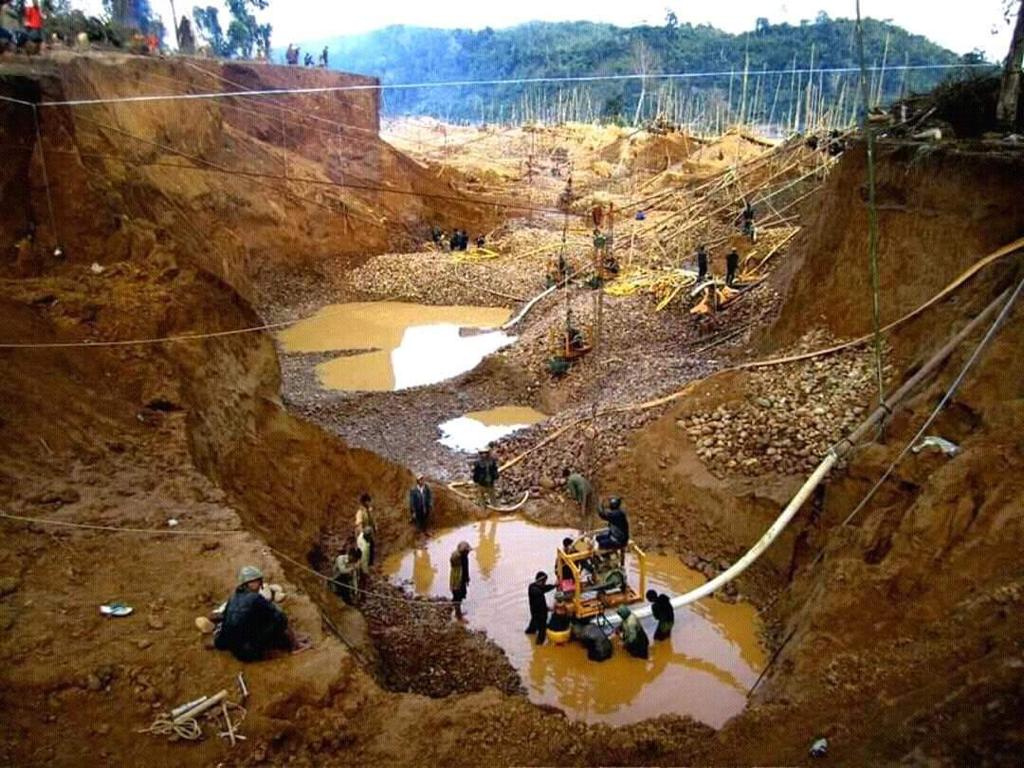The agrarian landscapes of Northern states, once calm to the lives of farmers, traders, passers, visitors and herders, have morphed into a dystopian tableau of violence and greed. At the heart of this transformation lies the glittering menace of gold.
Before the spike in the nefarious activities of bandits, local mining, although hazardous due to the collapse of mining pits, did not significantly impact most communities. However, as banditry became rampant, a strong connection between mining and criminal activities of marauding gangs began to emerge.
Mining has been subverted into a potent catalyst for the rampant banditry plaguing the region, especially in Niger State, Zamfara and its environs. It’s a tale as old as time: riches beckon, and with them, a descent into a Hobbesian world of survival of the fittest.

A local miner known as Alhaji Yusuf Bello, paints a grim picture of a trade turned deadly. “Envy,” he says, “is the root of this evil.” The allure of gold, a precious metal that promises a swift escape from poverty, has transformed colleagues into cutthroats. The once peaceful mining pits have become battlegrounds, where Dane guns replace shovels.
The symbiotic relationship between bandits and miners is a perverse dance of terror and turnover. Bandits who initially focused on cattle rustling and kidnapping hapless denizens for ransom, discovered a more lucrative venture.
They now target gold-rich households for abduction to secure a steady stream of ransom payments. The ease with which these families raised the money revealed the goldmine of opportunity that lay beneath the surface.
Idris Musa, a local resident, describes how bandits, once mere predators, evolved into shrewd businessmen. They identified their prey with surgical precision, focusing on those most likely to possess the coveted metal. The once-feared outlaws transformed into mining magnates, controlling vast swathes of the region’s mineral wealth.
Kachalla Halilu, a notorious bandit, typifies this metamorphosis. Once a terrorising force, he now wields a different kind of power. His mining empire dwarfs his criminal enterprise. This trend is replicated across the region, with bandit leaders becoming de facto warlords, their coffers filled with gold.
The government has not been idle. Governor Dauda Lawal’s executive order banning consent letters for mining was a bold step. It acknowledged the inextricable link between gold and violence. However, as Niger State’s experience demonstrates, even with bans in place, the allure of gold proves too strong to resist.
The narrative of the Chinese mining company in Shiroro LGA is a microcosm of the larger problem. Despite the region’s volatile security situation, the promise of riches drew foreign investors. The attack on the site, a brutal reminder of the risks involved, did little to deter others.
The testimonies of local residents are damning. They allege a tacit understanding between miners and bandits, a sharing of spoils that fuels the cycle of violence. The collapse of the mining pit, a tragedy in itself, also serves as a stark reminder of the industry’s disregard for human life and environmental impact.

The security forces are also caught in a seemingly endless battle. As Commissioner of Police Muhammad Shehu Dalijan points out, the nexus between banditry and mining is a national problem. The challenge lies in dismantling the complex web of relationships that sustain this illicit trade.
The road to recovery is long and arduous. It requires not just military might, but also a comprehensive approach that addresses the root causes of the problem. Poverty, inequality, and a lack of opportunities are fertile ground for the growth of criminal enterprises. Sustainable development, job creation, and effective governance are essential components of any lasting solution.
The complex relationship between mining and banditry in Nigeria’s Niger and Zamfara states has exacerbated local insecurity, revealing deep-seated issues within the mining industry and its regulation. The testimony of local residents and officials underscores the urgent need for comprehensive strategies to address the intertwined challenges of illegal mining and banditry.
Until then, the shadow of the gold rush will continue to cast a long and dark spell over Nigeria.

